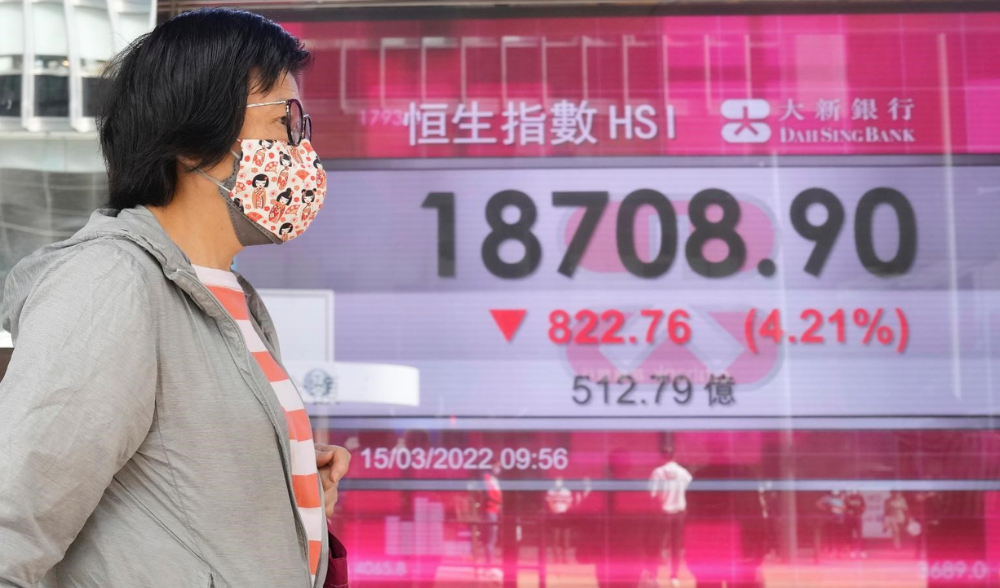NASER ALMEHSARI WRITES – Asian stock markets have suffered the brunt of the Russia-Ukraine conflict. Major markets such as China, Australia and South Korea fell sharply, while Tokyo managed to post a marginal rise and central bank rate hikes accompanied new lockdown notices in different regions of Asia. A sense of uneasiness has been observed among investors as industry experts suggest that most institutions are preparing to halt the stimulus that was designed to revive economies. The situation is the same with small company stocks, as the Russell 2000 index slid by more than 1.9%.
Historically, Asian stock markets have shown resilience in times of global crises. This is not the case today, as Asian stock markets fell to their 15-month lowest within a span of 3-4 weeks. Sydney saw the highest losses. While this is being attributed to a technical correction, the major Australian stock exchange shed more than 10% from its recent high. Asia FX has also been down, while US Futures saw a correction of 1%. In addition, Korea is poised to witness a prolonged bear market, and the FTSE100 is projected to fall by 2% in the next week.
Inflation in the United States has been a major concern for Asian economies. Given the projected further rise, aggressive monetary policies are on the table. The current rate of inflation in the U.S. is around 7%. Any further increase would inherently lead to rate hikes. The Bank of England is also considering such a stance, as borrowing costs have been increased from December to control consumer prices. And as the U.S. dollar saw a rise riding on higher bond yields, the pound has slipped along with a drop in Brent crude, the global benchmark for oil.
Meanwhile, oil prices have since increased further, currently standing at $105 per barrel. Uncertainties continue to plague Asian stock markets as discussions between Russia and Ukraine seem to have reached a stalemate. This has also played a role in market swing, leading to increased volatility, although U.S. markets have witnessed some steadiness as key interest rates have been raised by the Federal Reserve. Reports of India and other European countries importing oil from Russia have also created panic in the markets.
This current stock market crisis in Asia has had a significant impact on purchasing power. As per industry estimates, the recovery phase will extend over a prolonged period. Major Asian economies including those of China, Australia, Japan, India and Honk Kong, have seen short-term rallies but net movements have been negative. Unless the Russia/Ukraine war subsides, greater volatility is in the cards for Asia.


One Reply to “ASIAN STOCK MARKETS: SURRENDERING TO THE HARD REALITIES OF THE RUSSIA-UKRAINE WAR”